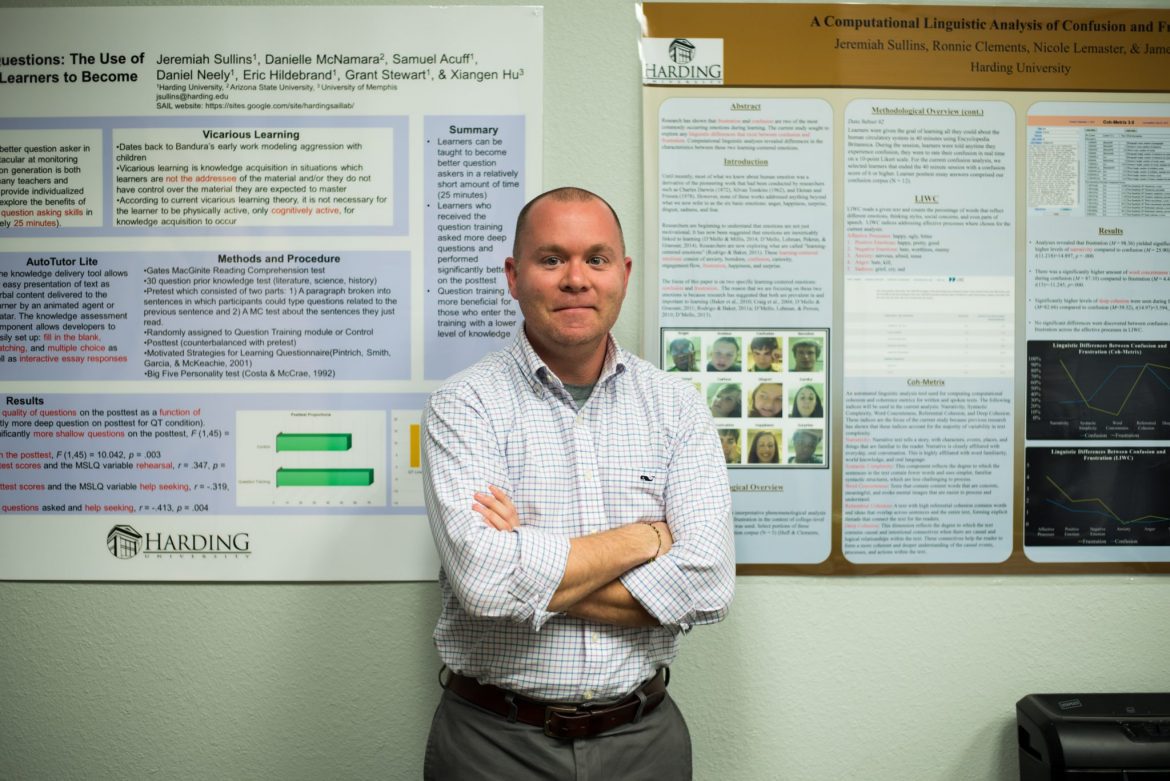Two Harding professors are conducting research seeking to better understand the effects of shame in an academic setting.
Dr. James Huff, assistant professor of engineering, and Dr. Jeremiah Sullins, assistant professor of psychology, as well as colleagues at the University of Georgia, received a grant from the National Science Foundation to pursue a project they’ve titled “Inclusion, exclusion, and socialization in engineering programs – Investigating key affective socio-psychological mechanisms in professional formation.”
“Students, beyond just engineering, have powerful experiences that are colored by their emotions,” Huff said.
The lead investigator of the project, Huff said the study focuses on how engineering students experience shame and how engineering degree programs create moments in which students may experience shame. The study has two primary parts: in-depth interviews with students and an ethnographic analysis of student focus groups at both a private and public university.
“Engineering is a profession that has historically been dominated by representation of white men where many (including some white men) feel that they are not meeting others’ expectations of being an engineer,” Huff said. “If a number of students are processing shame in an unhealthy way, it can create an environment that mangifies social expectations of a certain profession at the expense of students’ overall well-being.”
This is the first major research collaboration project for Huff and Sullins. It is also a major opportunity for Harding, as a university, to make its way into the research field.
“The Christian faith that characterizes our institutional culture allows us to easily collaborate across proper disciplinary and ask bold questions that are not easy to answer, such as our investigation on shame,” Huff said.
Sullins and a team of undergraduate students are conducting another study researching shame from an academic viewpoint in the Center for Cognitive Studies.
“We basically are looking at the role of academic shame and how that impacts learning in a classroom,” Sullins said.
Academic shame, Sullins said, involves failure that a student may feel because of their performance in an academic setting. If a student does poorly on a test, they may perceive that as a failure. Sullins added that shame is a self-conscious belief that corresponds with negative feelings about oneself, as opposed to guilt, which is associated with negative feelings about one’s actions.
Senior Rebecca Denton is one of six undergraduate students working on the study with Sullins. Denton’s main role is data collection, data coding and data entry. Students from different classrooms are also being asked to participate in the study.
“We’re doing more quantitative research,” Denton said. “We’re evaluating data from participants for different aspects that go into shame.”
Through the study, Sullins and Denton said they hope to see the impact of shame on learning and to provide a way for students and teachers to handle failure in a healthy way.
“We are wanting to take what we learned from our studies and develop a shame resilience intervention,” Sullins said. “Ultimately, something that can be packaged and delivered by an administrator or teacher at the beginning of a school year that would keep a student from experiencing shame after a perceived failure.”
Written by Nora Johnson and Erin Slomers
